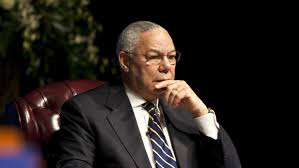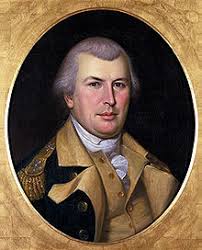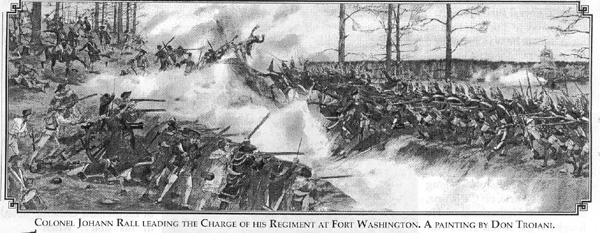
I gave a leadership presentation last month to a group of leaders and was approached at the end of the event by one of the participants. She posed a question that is often asked.
After some complimentary remarks about my message, she looked at me, took a deep breath, shrugged her shoulders and with a despondent look asked, “Were you ever tired…I mean really tired… when you were a boss?”
She told me she was a mother of four, had a demanding leadership job and was being pulled in a dizzying array of directions. Despite tremendous support from her loving husband, she was exhausted.
Sound familiar?
Surveys report that more than half of employees check email while they’re on vacation. That’s a recipe for disaster.
With all the demands we face as leaders – endless meetings and conference calls, 24/7 technology-enabled connectivity, leading smaller teams with increased work, along with the demands of family – even the most resilient leader can get overwhelmed. In fact, a recent Deloitte survey of 2500 executives in 94 countries found that overwhelmed leaders and employees are a global concern with implications not only for those leaders but for their organizations as well.
How does one prevent burnout?

During the last 10 years of my Navy career I had some extremely demanding jobs. I was very fortunate to have had a very supportive wife – Kris is still super supportive! Nonetheless, it was exceedingly difficult to balance my role as a husband and father of three with work demands. What saved me from burning out? I unplugged.
Before I had the wisdom to unplug, I’d grow resentful when reading work email while on vacation. It’s tough to have a good attitude, regardless of the role you’re in, when harboring resentment. When I became more mindful of the critical link between work-life balance and my attitude/optimism (optimism being a vitally important leadership behavior – see my power of optimism post) here’s some wise counsel a good friend gave me:
- Take vacation
- Formally assigned someone to take your place during your absence
- Have all business email sent to them in your absence
- Inform them to act on the emails as they deem fit
- Instruct them to call you if they have any questions
- Don’t read your email – actually unplug!
This proved to be a game changer for me. In addition to letting me really enjoy my vacation, I didn’t have hundreds of emails to read when I returned. Equally important I empowered one of my staff members by showing that I trusted them. Truly turning over the reins…with availability by phone if needed…is the ultimate mentoring tool. It grooms new leaders. Finally, you’re setting a great example – you’re giving others permission to enjoy time with their loved ones without guilt.
Be a great leader and unplug while vacationing…you’re giving others permission to enjoy time with their loved ones without guilt.
I don’t know how many people today actually unplug at any time. Surveys report that more than half of employees check email while they’re on vacation. That’s a recipe for disaster. We’re not robots. We need time off to recharge and reconnect with love ones…and ourselves.

Be a great leader and unplug while vacationing. Empower others to step in…I mean really step it. You’ll find it much easier to be the contented boss, spouse, parent and friend that you…and everyone around you…wants you to be.


 It’s a big challenge for leaders – you have an extremely talented member of your team…the best surgeon, best salesman, best IT technician. While they’re at the top of their technical game, being on your team comes with a cost. They’re also a prima donna. They have an inflated view of themselves. They’re demanding, temperamental, unpredictable, self-important.
It’s a big challenge for leaders – you have an extremely talented member of your team…the best surgeon, best salesman, best IT technician. While they’re at the top of their technical game, being on your team comes with a cost. They’re also a prima donna. They have an inflated view of themselves. They’re demanding, temperamental, unpredictable, self-important.
 Throughout the ensuing week, during my walks around the command, I made it a point to visit the areas where these sailors worked. I thanked them for their volunteer service, referencing the specific event they had supported. It was pure joy to see the pride and delight in their faces – their eyes literally lit up as I thanked them for these acts of kindness. They were all surprised and elated for the recognition! At some point they all asked the same question. “How the heck did you know about this, Sir?” I told them that the Master Chief was working his magic again. I bantered a little with them, but quickly moved on. Each interaction lasted a couple of minutes.
Throughout the ensuing week, during my walks around the command, I made it a point to visit the areas where these sailors worked. I thanked them for their volunteer service, referencing the specific event they had supported. It was pure joy to see the pride and delight in their faces – their eyes literally lit up as I thanked them for these acts of kindness. They were all surprised and elated for the recognition! At some point they all asked the same question. “How the heck did you know about this, Sir?” I told them that the Master Chief was working his magic again. I bantered a little with them, but quickly moved on. Each interaction lasted a couple of minutes. took the time to thank them.
took the time to thank them.




 About midway through my Navy career I was put in charge of a large pharmacy operation that had far too many patient complaints. The top 2 complaints were long patient wait times (to get their prescriptions filled) and rude behavior from the pharmacy staff. Both were legitimate and I was told to fix ‘em.
About midway through my Navy career I was put in charge of a large pharmacy operation that had far too many patient complaints. The top 2 complaints were long patient wait times (to get their prescriptions filled) and rude behavior from the pharmacy staff. Both were legitimate and I was told to fix ‘em.


 Shortly after this exchange of letters Fort Washington was surrounded by thousands of British troops and surrendered. All 2900 men, badly needed to sustain the fledging American army, were either killed or taken prisoner. It was the worst American defeat of the war up to that point.
Shortly after this exchange of letters Fort Washington was surrounded by thousands of British troops and surrendered. All 2900 men, badly needed to sustain the fledging American army, were either killed or taken prisoner. It was the worst American defeat of the war up to that point. When (note when…not if) a subordinate commits a significant blunder and the sharks smell blood in the water, take a breath.
When (note when…not if) a subordinate commits a significant blunder and the sharks smell blood in the water, take a breath.
 One of most difficult challenges I wrestled with throughout my Navy career was balancing my time, energy and focus on being the best husband and father I could be with being the best Naval Officer I could be.
One of most difficult challenges I wrestled with throughout my Navy career was balancing my time, energy and focus on being the best husband and father I could be with being the best Naval Officer I could be.